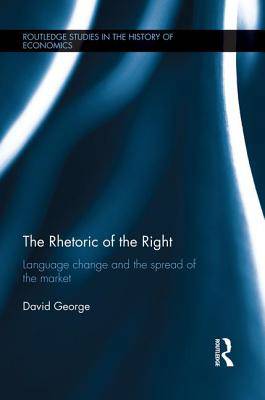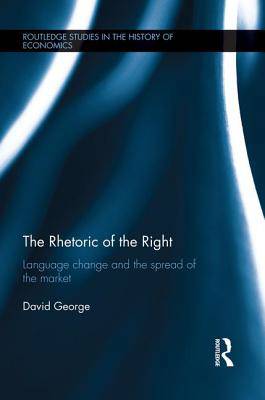
- Afhalen na 1 uur in een winkel met voorraad
- Gratis thuislevering in België vanaf € 30
- Ruim aanbod met 7 miljoen producten
- Afhalen na 1 uur in een winkel met voorraad
- Gratis thuislevering in België vanaf € 30
- Ruim aanbod met 7 miljoen producten
Omschrijving
This study seeks to demonstrate the subtle ways in which changes in the language associated with economic issues are reflective of a gradual but quantifiable conservative ideological shift.
In this rigorous analysis, David George uses as his data a century of word usage within The New York Times, starting in 1900. It is not always obvious how the changes identified necessarily reflect a stronger prejudice toward laissez-faire free market capitalism, and so much of the book seeks to demonstrate the subtle ways in which the changing language indeed carries with it a political message. This analysis is made through exploration of five major areas of focus: "economics rhetoric" scholarship and the growing "behavioral economics" school of thought; the discourse of government and taxation; the changing meaning of "competition," and "competitive"; changing attitudes toward labor; and the celebration of growth relative to the decline in attention to economic justice and social equality.
Specificaties
Betrokkenen
- Auteur(s):
- Uitgeverij:
Inhoud
- Aantal bladzijden:
- 200
- Taal:
- Engels
- Reeks:
Eigenschappen
- Productcode (EAN):
- 9781138791497
- Verschijningsdatum:
- 22/08/2014
- Uitvoering:
- Paperback
- Formaat:
- Trade paperback (VS)
- Afmetingen:
- 152 mm x 229 mm
- Gewicht:
- 294 g

Alleen bij Standaard Boekhandel
Beoordelingen
We publiceren alleen reviews die voldoen aan de voorwaarden voor reviews. Bekijk onze voorwaarden voor reviews.











